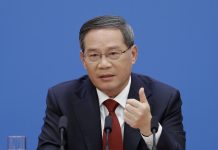DM Monitoring
FRANKFURT: The future opportunity of the China-proposed Belt and Road Initiative (BRI) is “real,” Erich Staake, chief executive officer of German logistics company Duisburger Hafen AG, has said.
“New logistics infrastructures mean new sales markets,” Staake told a recent interview with Xinhua, noting that the expansion of infrastructure in the countries and regions along the Belt and Road can open up more sales markets, notably for European companies.
He expressed the confidence that China’s role as a critical international trading partner for Europe will even consolidate in the post-pandemic era.
“To achieve this, we need to deal with the expansion of infrastructure,” said Staake. In his view, it should be beneficial to further raise efficiency and reduce the cost of rail freight transport across the Eurasian continent by improving infrastructures along the way.
Located in Germany’s industrial Ruhr region, the Port of Duisburg is the world’s largest inland port as well as the leading logistics hub in Central Europe. Since 2011 when the first regular rail freight connection between Duisburg and the southwest China’s megacity of Chongqing was launched, the port has been enjoying sustained momentum of growth and won the position as a key terminal of the freight trains from and to China.
“For a decade now, we have been considered pioneers in Eurasian rail transport,” said the 67-year-old chief executive officer, adding that Duisburg has continuously expanded the network with China since 2011.





